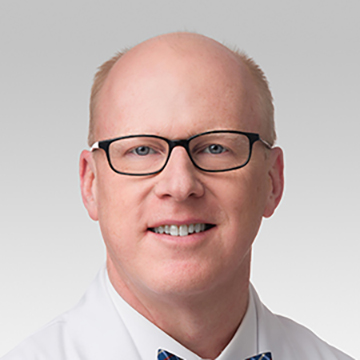Mobile Nursing Services Expand Research Capacity at Northwestern Medicine
Since 1964 — when John Bergan, MD, completed the first successful kidney transplant at what is now Northwestern Memorial Hospital — more than 7,000 of the surgeries have taken place at Northwestern Medicine.
Today, John Friedewald, MD, his study team, and Northwestern’s Clinical Research Unit (CRU) are collaborating to investigate new ways to make even more patients eligible for kidney transplants.
“Our clinical trial is investigating a novel drug compound designed to deplete plasma cells in order to reduce levels of anti-HLA antibodies in patients awaiting a kidney transplant,” says Friedewald, professor of Medicine in the Division of Nephrology and Hypertension, and of Surgery in the Division of Organ Transplantation.
Patients that accumulate a broad range of HLA antibodies are referred to as “highly sensitized.” When the level of sensitization approaches 100 percent, the chances of finding a compatible living or deceased kidney donor become extremely slim, often meaning that a patient will not have access to a kidney transplant and be relegated to a lifetime of dialysis.

My experience with the CRU nurses has been fantastic. The flexibility provided by the CRU nurses creates an environment in which a variety of different clinical trials could be performed in a hospital setting. ”
John Friedewald, MD, professor of Medicine in the Division of Nephrology and Hypertension, and of Surgery in the Division of Organ Transplantation
“So, drugs that can reduce the level of sensitization allow better access to a kidney transplant for patients on the waitlist,” says Friedewald, a member of the NUCATS Institute. In 2023, the Northwestern Medicine Organ Transplantation Center performed 347 kidney transplants, making it the seventh largest program in the United States.
Because the drug in Friedewald’s study needs to be delivered within 24 hours of a patient being admitted to the hospital, the study team relies on the CRU’s inpatient mobile nursing services to administer the compound and monitor the patient.
“Having the flexibility to have our study participants on the solid organ transplant floor but monitored by the inpatient research service line provides the best of both worlds in terms of inpatient clinical research conduct,” says Friedewald. “My experience with the CRU nurses has been fantastic. The flexibility provided by the CRU nurses creates an environment in which a variety of different clinical trials could be performed in a hospital setting.”
The study requires safety labs to be checked as well as frequent vital sign assessment to monitor for cytokine release syndrome, a serious inflammatory issue that can occur when the immune system overreacts to certain drugs or infections.
CRU nurses arrive on the organ transplant floor and begin by taking a patient’s vital signs. When the study team provides their approval, a series of medications are administered by CRU nurses before the new drug — prepared by the NMH Investigational Drug Service pharmacy — is used. The nurses continue to take a series of vital signs every 15 minutes for the first hour, then every 30 minutes for the next hour, and once every hour after that. After four hours the CRU team takes a final set of vitals and draws labs. After being discharged, patients in the trial return for two additional visits.
“One of the best parts of working with the mobile service team is that it allows us to make the volunteer study participant experience better,” says Andrew Nelson MSN, RN, CMSRN, a CRU clinical coordinator. “We’re also able to provide flexibility and convenience for study teams, especially when they have more than one participant in a given day.”
The NMH Clinical Research Unit and Core Lab are part of NUCATS Center for Clinical Research (CCR). The CRU supports Northwestern Medicine’s research mission by providing research specific nursing and laboratory services for the implementation of clinical trials and other clinical research, increasing their availability to participants. If you are interested in utilizing the CRU for mobile services, please complete the NUCATS Center for Clinical Research Intake Form.
“Mobile services make it possible to deliver the best patient care and experience because study participants are in the right bed with the right expert caregivers for their specific condition and treatment,” says Sherri Willoughby, RN, MSN, manager, Clinical Research Unit. “Mobile services are available throughout the academic medical center in inpatient units, procedural areas, and ambulatory care clinics.
Written by Roger Anderson




